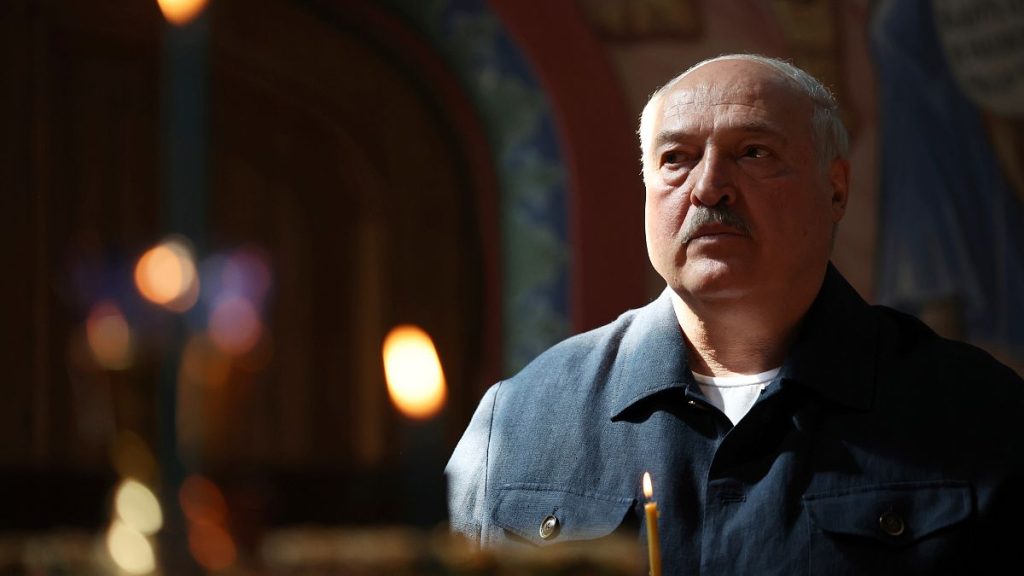Belarusian President Alexander Lukashenko has granted a pardon to German citizen Rico Krieger, who was sentenced to death on terrorism charges. It is unclear if this means Krieger’s sentence will be commuted to life in prison or if he will be released. Krieger has been accused of photographing military facilities and staging an explosion at a railway station on orders from Ukrainian special services. Belarus is the only country in Europe that still carries out capital punishment.
Lukashenko called a meeting to discuss an appeal from Krieger earlier on Tuesday, during which Krieger’s lawyer Vladimir Gorbach, who was present at the meeting, reported that Lukashenko would consider Krieger’s request for pardon and announce his decision later. The Belarusian Foreign Ministry has been in contact with German officials about Krieger’s fate, proposing specific solutions for the situation. The German government has expressed concern and has been providing consular support, but has not provided further details.
Human rights activists believe that Krieger’s case is part of the ongoing political repressions in Belarus, sparked by Lukashenko’s controversial re-election in 2020. Over 35,000 people have been arrested and thousands have been abused in police custody. It is suspected that Krieger may have been set up by the Belarusian security agency, the KGB, through deceptive messaging chats. Speculation has emerged that Belarusian authorities may be working with Russian spy agencies to potentially exchange Krieger for Russian national Vadim Krasikov, who is serving a life sentence in Germany for a 2019 assassination in Berlin.
Russian President Vladimir Putin has hinted at a possible exchange involving Krasikov in response to questions about releasing Wall Street Journal reporter Evan Gershkovich. Gershkovich was recently convicted and sentenced to 16 years in a maximum-security prison on espionage charges that have been dismissed by him, his employer, and the US government as fabricated. The situation surrounding Krieger’s pardon raises concerns about the political climate and human rights in Belarus, and highlights potential collaborations with Russian intelligence agencies in high-profile prisoner exchanges.
The German Foreign Ministry confirmed Krieger’s pardon, calling it a relief but providing no further information. Belarusian authorities have accused Krieger of terrorism-related activities, leading to his arrest in October. While it remains unclear if the pardon will result in his release or a commutation of his sentence, the situation has drawn international attention to Belarus’ use of capital punishment and its relationship with Russian intelligence agencies. The broader context of political repression and human rights violations in Belarus adds complexity to Krieger’s case and highlights challenges in navigating diplomatic relations in the region.


